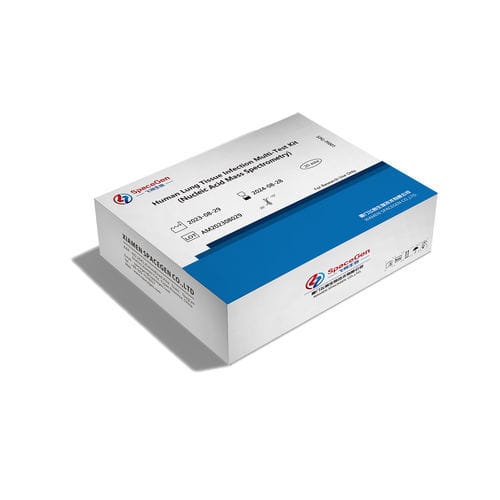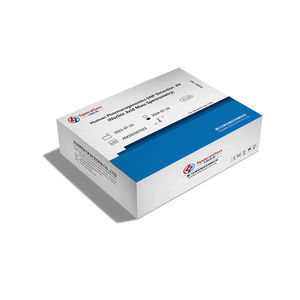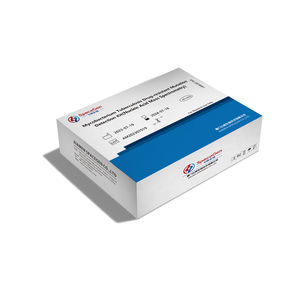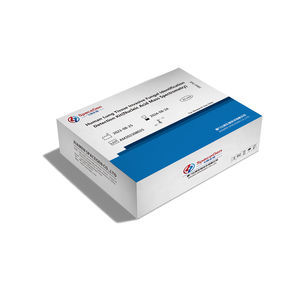

- Company
- Products
- Catalogs
- News & Trends
- Exhibitions
Research test kit AM202308029tuberculosisfor mycobacteriatissue
Add to favorites
Compare this product
Characteristics
- Applications
- for research, tuberculosis
- Micro-organism
- for mycobacteria
- Sample type
- tissue, cell
- Analysis mode
- nucleic acid mass spectrometry
Description
Tuberculosis and non-tuberculosis diseases caused by mycobacterial infections are highly infectious diseases that pose a serious threat to human health. They are prevalent worldwide and are among the key infectious diseases targeted for control globally. Due to the similarity in symptoms between tuberculosis and non-tuberculosis diseases, but with distinctly different treatment approaches, most non-tuberculous mycobacteria naturally exhibit resistance to anti-tuberculosis drugs. Furthermore, tuberculosis mycobacteria that undergo drug-resistant mutations can also develop resistance against anti-tuberculosis drugs. With the widespread use of hematopoietic stem cell transplantation, solid organ transplantation, immunosuppressive agents, chemotherapy drugs, and various interventional therapies, the incidence of invasive pulmonary fungal infections is gradually increasing. Clinically, patients with pulmonary fungal infections do not exhibit specific manifestations, making early diagnosis challenging. The condition is easily masked by underlying diseases, leading to misdiagnosis, missed diagnosis, and delayed treatment, resulting in high mortality rates. Therefore, accurate identification of mycobacterial infections in lung tissue, identification of invasive fungal infections, and correct detection of drug-resistant mutations in anti-tuberculosis drugs are crucial for the diagnosis and treatment of these diseases.
DETECTION METHOD
Matrix-assisted laser desorption/ionization time-of-flight mass spectrometry (MALDI-TOF-MS) is a novel soft ionization technique used for the analysis of biomolecules.
Catalogs
No catalogs are available for this product.
See all of SPACEGEN‘s catalogsRelated Searches
- Assay kit
- Blood assay kit
- Immunoassay assay kit
- Plasma assay kit
- Infectious disease detection kit
- Analysis software
- Molecular test kit
- Respiratory infection test kit
- Whole blood detection kit
- Optical assay kit
- Clinical assay kit
- Fluorescence assay kit
- Viewer software
- Real-time PCR test kit
- Research assay kit
- Laboratory software
- Windows software
- Laboratory detection kit
- Cell assay kit
- Oncology test kit
*Prices are pre-tax. They exclude delivery charges and customs duties and do not include additional charges for installation or activation options. Prices are indicative only and may vary by country, with changes to the cost of raw materials and exchange rates.





